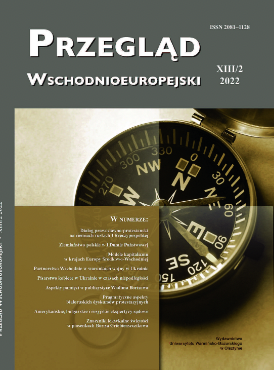Modalność deontyczna w angielskiej, polskiej i rosyjskiej wersji powszechnej deklaracji praw człowieka
Deontic modality in the English, Polish and Russian versions
of the Universal Declaration of Human Rights
Author(s): Michail L. Kotin, Patrycja MontusiewiczSubject(s): Language and Literature Studies
Published by: Wydawnictwo Uniwersytetu Warmińsko-Mazurskiego w Olsztynie
Keywords: grammatical categories; categorial convergence; verb grammar; juristic text
Summary/Abstract: The paper attempts to provide an analysis of the phenomenon of grammatical interaction in the categorial area of aspect, tense and deontic modality under the presumption that these three functions are mutually connected with each other and form a setting of overtly or covertly encoded interface. The source text is written in English which is a language without the so called “Slavic-style aspect” i.e. the grammatically denoted opposition between perfectivity and imperfectivity. Thus, the deontic modality, which is a typical feature of each juristic text, is encoded in it by means of overt modal signals (modal verbs and other modal entities) in connection with the tense forms, especially the future tense. The Polish and Russian translations encode the deontic modality both by means of grammatical aspect, modal entities and tense forms. The paper investigates the relations between overt and covert expressions of deontic modality. The main claim is based on the assumption by Werner Abraham that deontic modality is strictly linked to the category of perfectivity which is encoded in Russian and Polish by means of the grammatical aspect (“viewpoint aspect”). The second claim is the preference of passive and impersonal constructions both in the source text and in its translations which is caused by the specificity sort of the analyzed text.
Journal: Przegląd Wschodnioeuropejski
- Issue Year: XIII/2022
- Issue No: 1
- Page Range: 251-272
- Page Count: 20
- Language: Polish

